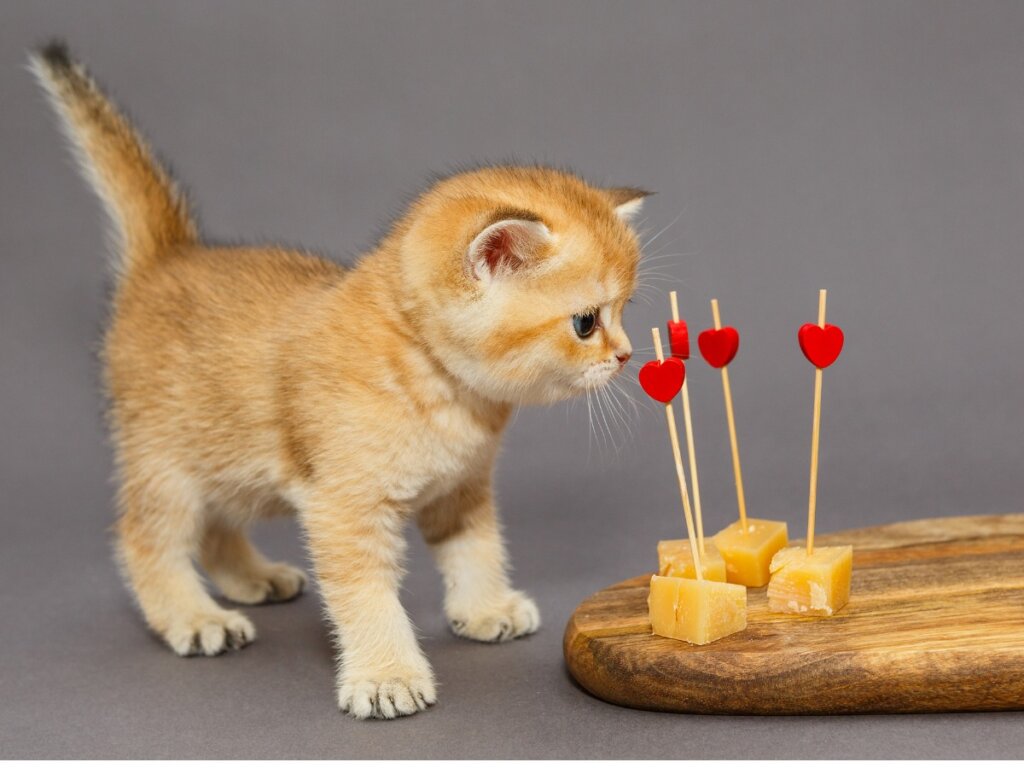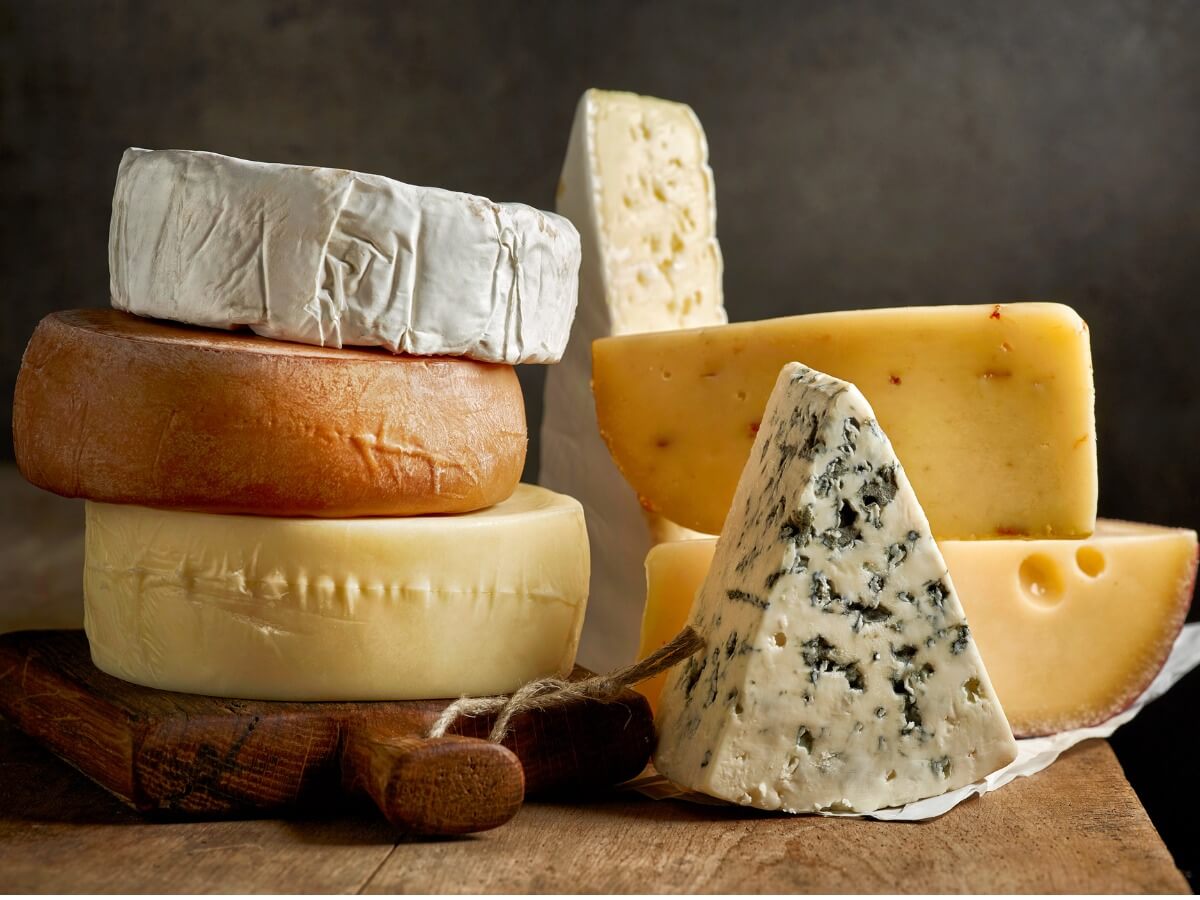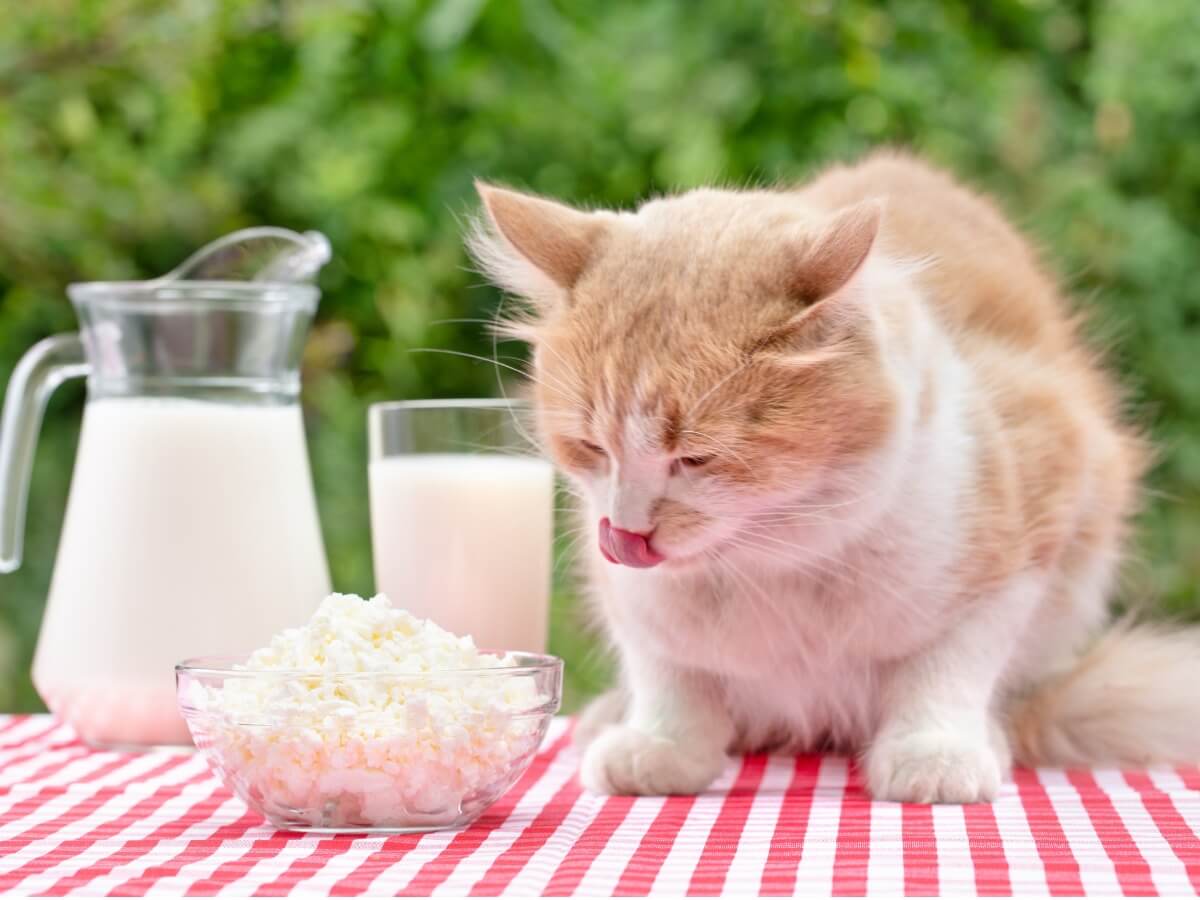Can Cats Eat Cheese?
Cheese isn't part a cat's natural diet. Still, they can eat it in moderation by following some guidelines. If you want to know which ones, we invite you to discover them.

Some people love cheese and others hate it. It’s hard to find the middle ground here. If an owner loves this dairy product and has a cat at home, they’ll have been tempted to let their cats eat some. However, can cats eat cheese?
When answering this question, it’s important to analyze the correct diet of these animals, as well as their characteristics and nutritional needs. Next up, we’ll answer this question and tell you about several indications that you can take into account. Don’t miss it!
Is cheese good for cats?
It isn’t unusual to wonder whether cats can eat cheese or if this food is bad for them. These types of questions must be considered, as some foods are very toxic to animals – food that we commonly eat as humans.
Cheese is obtained from the milk of various animals, such as cows, goats and sheep. For this reason, it’s a great source of protein of animal origin, in addition to providing calcium, magnesium, and phosphorus and also a considerable volume of fat.
That said, the main thing to note when asking is whether cheese is suitable for cats, as they’re carnivorous animals. Their diet should be composed mainly of animal protein, but always from fresh or processed meat.
Although the protein benefits of cheese are high, so are the fats and salt, which isn’t good for these animals. Even so, this isn’t the determining factor to take into account. The most important thing you need to know is that the vast majority of adult cats are lactose intolerant.
But how is this possible if we’re so used to seeing images of kittens drinking milk? Well, this is so because, when the kittens are lactating, their mother’s milk is their only sustenance. Therefore, their bodies continuously produce the enzyme lactase, which is responsible for digesting lactose.

When it’s time for weaning, the cat is ready to receive another type of diet, and so its body will gradually decrease lactase production. For this reason, many cats end up becoming lactose intolerant, as they don’t have the enzyme that helped them digest it at other times in their lives.
In these cases, when consuming dairy products, the cat could end up having digestive problems, such as diarrhea, gases, and vomiting. Although cats could eat cheese, it isn’t really suitable for them. Even so, you can offer it to them, always following certain indications. Here they are.
How to offer cheese to a feline occasionally
The important thing to bear in mind is that the consumption of cheese must be very moderate if you don’t want the cat to have the problems we already mentioned. Of course, in no case should you forget that their diet should be composed almost entirely of meat.
If the cat goes crazy over the smell of cheese, a small portion can be offered as a reward during training sessions. This will help to teach them through positive reinforcement. Of course, it’s important that, during these activities, you don’t only use snacks as rewards, as this can end up influencing the cat’s weight.
In addition to the aforementioned advice, if you make homemade recipes for your cat’s diet, you can use some cheeses, such as the lower fat ones, to give them a different flavor experience and to make them happy.
Finally, if your cat likes cheese and doesn’t react adversely when consuming it, it can be used to camouflage any medicines you need to give to the animal. Its taste will overshadow that of the drug itself, and help them to take the medicine.
Can kittens eat cheese?
It has become clear that adult cats often develop lactose intolerance and so regularly giving them cheese isn’t good for them. But can kittens eat cheese? While they’re feeding on breast milk they continue to produce lactase, and so digesting dairy products is easier.
However, as experts point out, when a cat is ready to eat solid food is when it begins to stop producing the aforementioned enzyme. So, although the risks may be minor at first, it’ll end up being a problem for the cats quite soon.
Types of cheese that are ideal for cats
Cow’s milk is one of the fattiest. Therefore, the cheeses made with this milk aren’t the most suitable for cats. For them, it’s better to opt for slightly lighter cheeses, such as sheep or goat.
These are usually easier to digest, thus avoiding gastric problems in the animal. Even so, as always when offering new food to pets, it’s best to give them a small amount and be very aware of possible adverse reactions.
Amounts of cheese
As already mentioned, cats may occasionally eat cheese, but there’s no specific dosage indicated for them. Even so, some research indicates that adult cats could digest up to 6 grams of lactose a day without a problem.
However, you should remember that many cheeses are high in salt – in addition to other condiments – and their fat content is very high. Therefore, we don’t advise you to reach this amount. Giving it as a reward or using it as a supplement to a homemade recipe several times a month would be more than enough to satisfy the cat’s whims and not cause any damage.

Beyond this, when it comes to stating whether cats can eat cheese and how much, it’s important to take into account their health status. For this reason, before offering a cat food that you don’t know whether it’s suitable or not for them, it’s best to ask a veterinarian about the animal’s nutritional needs.
Interested in knowing more about what you can and can’t feed your cat? Have a look at this article:

